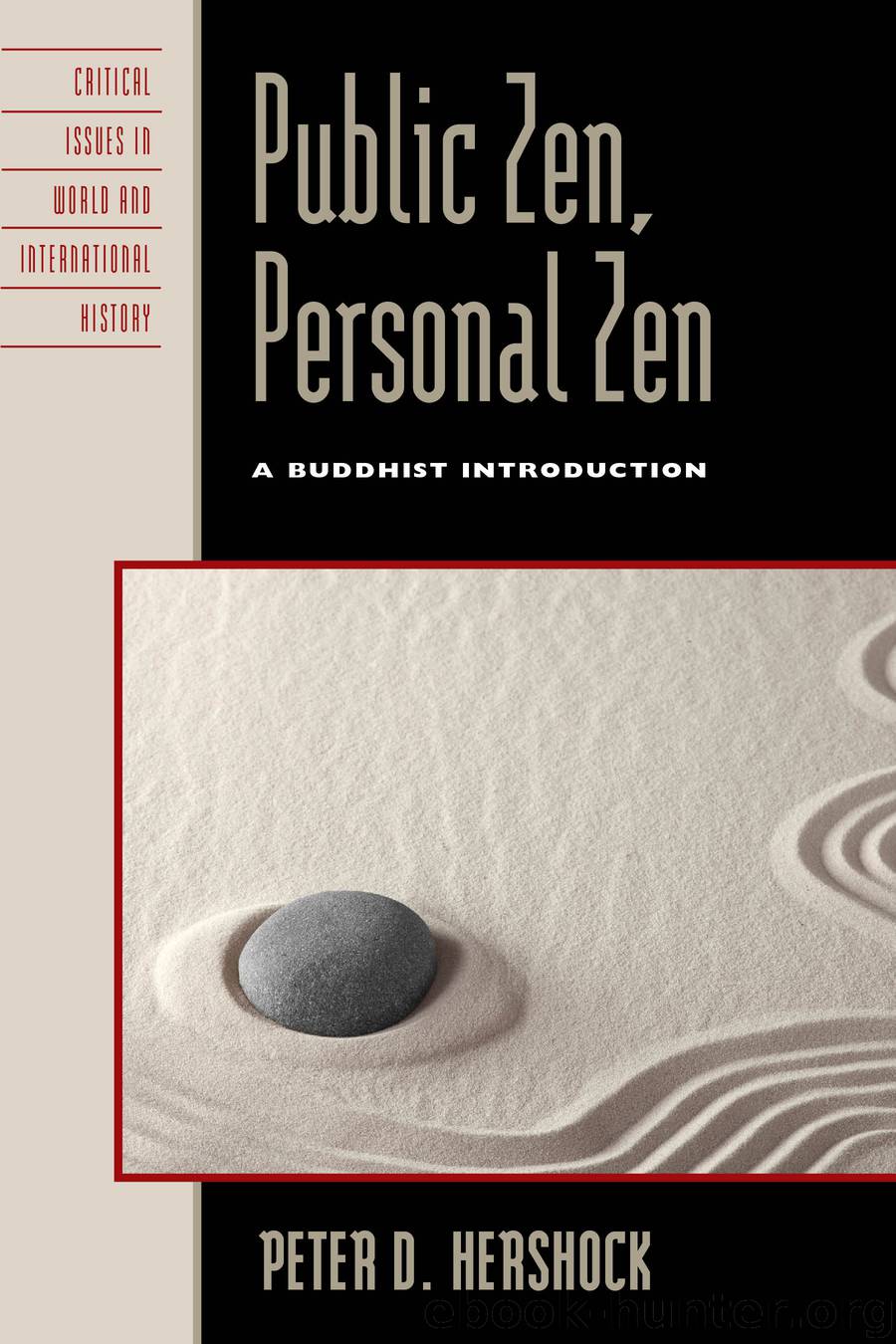Public Zen, Personal Zen by Peter D. Hershock

Author:Peter D. Hershock
Language: eng
Format: epub
Tags: undefined
Publisher: Rowman & Littlefield Publishers
Published: 2012-02-22T16:00:00+00:00
A Mixed Reception
Not every Rinzai monk was as favorably impressed as Jikuin and Ryūkei with Yinyuan and his Ōbaku style of Zen. Yinyuan’s arrival in Japan came at a time when support for Rinzai was not as robust as many would have liked, when the once-dominant gozan temple system was in apparent decline, and when the Tokugawa government took a generally controlling attitude toward Buddhism. In this context, the extraordinarily positive reception that was granted to Yinyuan by the shogunate served to crystallize concerns that had been circulating about Yinyuan and his entourage of Chinese monks since shortly after their arrival in Nagasaki.
One set of concerns centered on what some Japanese monks experienced as the cultural arrogance of the Chinese monks accompanying Yinyuan. At the Zen temples in Nagasaki’s Chinese quarter, every aspect of daily life had an unmistakably Chinese flavor, including the food that was served, the manner in which meals were eaten, the kinds of robes and hairstyles worn by the monks, the music played during rituals, and of course the language spoken in both formal and informal settings. This was to be expected. Since these temples served an immigrant Chinese community, it was natural for Chinese cultural elements to be prominent in them. It was neither expected nor appreciated, however, that Yinyuan’s students would engage their Japanese hosts with what seemed to be an air of unquestioned superiority.
It is certainly possible that the charges of “cultural chauvinism” leveled against Yinyuan and his students were based in relatively innocent failures to adjust to Japanese manners and customs in the initial period after their arrival. But nothing changed appreciably, even after Yinyuan had relocated to Kyōto. No adjustments were made to the character of temple life at Manpukuji even when Japanese monks there far outnumbered those from China. In fact, both Yinyuan and the Tokugawa bakufu apparently did not see Manpukuji as a Japanese Rinzai temple, but rather as a “purely” Chinese temple built on Japanese soil: an autonomous refuge of authentic Linji Chan practices and institutional protocols. Instead of being forced by the government to be placed within one of the existing Zen temple hierarchies—something required for all new Rinzai and Sōtō temples—Manpukuji was allowed an ambiguous and yet undeniably privileged, independent status.
In addition to their Chinese customs, Ōbaku monks from China also seem to have brought with them distinctly Chinese sectarian sensibilities. In keeping with Feiyin’s reconstruction of Chan transmission genealogies, the members of Yinyuan’s émigré community had no hesitation in regarding themselves as being at the historical pinnacle of Linji Chan: the current generation’s legitimate representatives of Chan orthodoxy and orthopraxy. And there clearly were Japanese who were ready to embrace this as fact. Since Yinyuan was a direct descendant of Huangbo, Linji’s grandfather in the Dharma, he was at least the equal of the present generation of Rinzai lineage holders in Japan. But because his line had been continuously Chinese, it was at least conceivably more direct and pure than those in Japan where adaptations to local conditions had taken place.
Download
This site does not store any files on its server. We only index and link to content provided by other sites. Please contact the content providers to delete copyright contents if any and email us, we'll remove relevant links or contents immediately.
Inner Engineering: A Yogi's Guide to Joy by Sadhguru(6797)
The Power of Now: A Guide to Spiritual Enlightenment by Eckhart Tolle(5785)
Fear by Osho(4740)
Ikigai by Héctor García & Francesc Miralles(4275)
The Art of Happiness by The Dalai Lama(4131)
The Ultimate Bodybuilding Cookbook by Kendall Lou Schmidt(3946)
Yoga Therapy by Mark Stephens(3749)
The Little Book of Hygge by Meik Wiking(3694)
The Healing Self by Deepak Chopra(3583)
Why Buddhism is True by Robert Wright(3454)
The Hatha Yoga Pradipika (Translated) by Svatmarama(3343)
Being Aware of Being Aware by Rupert Spira(3277)
Shift into Freedom by Loch Kelly(3199)
Wild Words from Wild Women by Stephens Autumn(3154)
Work Clean by Dan Charnas(3123)
Happiness by Matthieu Ricard(3050)
More Language of Letting Go: 366 New Daily Meditations by Melody Beattie(3030)
Yoga Body & Mind Handbook by Jasmine Tarkeshi(2880)
Why I Am Not a Feminist by Jessa Crispin(2761)
